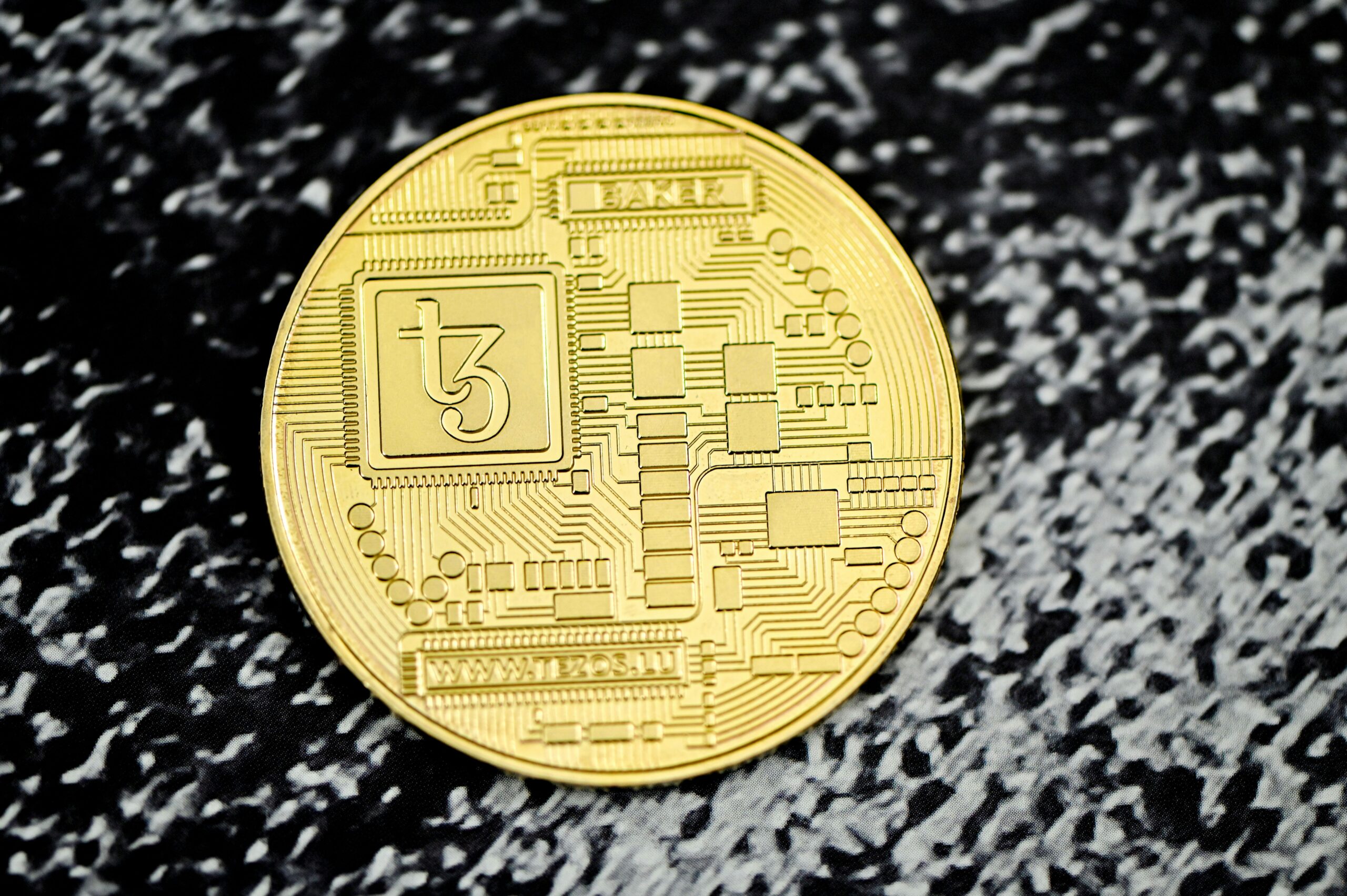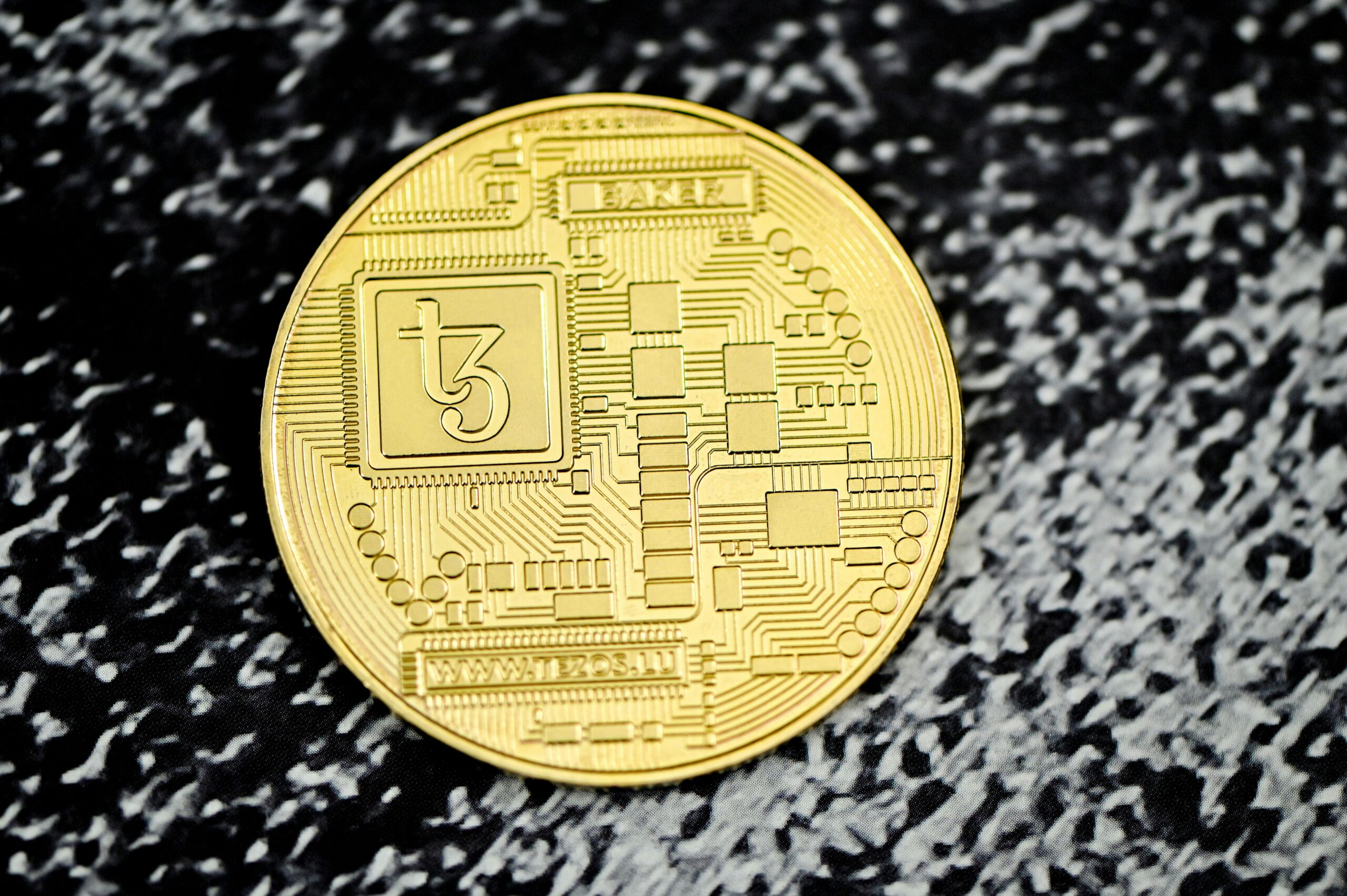
Introduction to the Global South and Economic Challenges
The term “Global South” encompasses a diverse range of countries predominantly in Africa, Latin America, Asia, and parts of the Caribbean. These nations share common economic challenges that stem from historical contexts, political instability, and the pressures of globalization. Many countries within the Global South experience high inflation rates, which erode the purchasing power of their citizens, leading to increased poverty levels and economic despair. Additionally, limited access to formal banking services exacerbates this problem, leaving many individuals without the means to save, invest, or transact securely.
Political instability is another significant factor affecting economic performance in the Global South. Frequent changes in leadership, civil unrest, and governance issues contribute to an unpredictable environment for both local and foreign investment. Such instability can deter economic growth and create further barriers for ordinary citizens seeking financial stability. Moreover, the effects of globalization often leave these nations at a disadvantage, as they grapple with issues related to trade imbalances and reduced local competitiveness.
Given these challenges, innovative solutions are critical for fostering economic empowerment in these regions. Bitcoin, as a decentralized digital currency, offers a potential pathway for individuals and communities in the Global South to circumvent traditional financial barriers. The adoption of Bitcoin can empower people by providing them with an alternative means of wealth preservation and transfer, enhancing their ability to engage in economic activities without reliance on unstable local currencies or inadequate banking infrastructure.
As the discourse around global finance evolves, it becomes imperative to explore how technologies like Bitcoin can serve as a tool for economic empowerment in the Global South. By examining its potential, we open up possibilities for sustainable growth and financial inclusion in regions where conventional systems have often failed.
Understanding Bitcoin: Basics and Benefits
Bitcoin, a decentralized digital currency, was introduced in 2009 by an unknown entity known as Satoshi Nakamoto. Unlike traditional currencies, Bitcoin operates on a peer-to-peer network, which means it is not governed by any central authority or financial institution. This decentralized nature makes transactions more secure and resistant to censorship. As a virtual currency, Bitcoin offers a unique alternative to the conventional banking systems that often exclude people in the Global South, where access to financial services can be severely limited.
One of the primary advantages of Bitcoin is its relatively low transaction fees compared to traditional banking methods and remittance services. This characteristic is particularly beneficial for individuals in the Global South who often struggle with high costs associated with money transfers. With fewer intermediaries involved, users can enjoy more of their funds without excessive deductions. Furthermore, Bitcoin is accessible to anyone with an internet connection, thus providing an attractive option for people in remote areas where banking infrastructure may be lacking.
Another key benefit of Bitcoin is its potential to serve as a hedge against inflation. In several countries within the Global South, economic instability can lead to significant devaluation of local currencies. By adopting Bitcoin, individuals can protect their savings from inflation as this digital asset is capped at a total supply of 21 million coins, which inherently guards against the effects of currency printing. This capacity to hold value makes Bitcoin an appealing financial tool for those aiming to secure their economic futures.
In this context, understanding Bitcoin becomes crucial for individuals in the Global South as they navigate a complex financial landscape. By leveraging its decentralized nature, accessibility, and protective features, Bitcoin has the potential to foster greater economic empowerment, allowing individuals to bypass traditional financial barriers and embrace a more inclusive financial future.
Case Studies of Bitcoin Adoption in the Global South
Bitcoin adoption in the Global South has emerged as a significant phenomenon, with various countries showcasing its potential as a tool for economic empowerment. Notably, Venezuela stands out as a compelling example. The nation’s dire economic situation, marked by hyperinflation and political instability, has led many Venezuelans to adopt Bitcoin as a safeguard for their savings. By using Bitcoin, individuals are able to bypass traditional banking systems, which have been crippled by government policies. This shift not only offers a means to preserve value but also enables access to international markets, allowing Venezuelans to purchase essential goods and services that are often scarce locally.
El Salvador presents another noteworthy case. In September 2021, it became the first country to officially recognize Bitcoin as legal tender. This bold initiative aimed to increase financial inclusion among the unbanked population, a group comprising about 70% of its citizens. By promoting Bitcoin usage, the government has encouraged remittances from Salvadorans abroad to be sent through blockchain technology, significantly reducing transaction costs and enhancing the speed of transfer. The initiative has sparked a wave of entrepreneurial endeavors, leading local businesses to accept Bitcoin, thereby fostering a more inclusive economy.
Nigeria, the largest economy in Africa, also illustrates the transformative effects of Bitcoin. The country’s youth population has actively utilized cryptocurrency as a hedge against the naira’s depreciation. Moreover, Bitcoin has facilitated access to capital for small and medium enterprises that often struggle to secure traditional financing. Reports indicate a burgeoning cryptocurrency ecosystem, with numerous startups emerging to support Bitcoin transactions, showcasing the shift towards decentralized finance. In summary, these case studies from Venezuela, El Salvador, and Nigeria reveal how Bitcoin is not merely a digital asset but a catalyst for economic empowerment, reshaping the financial landscape in the Global South.
Overcoming Barriers to Bitcoin Adoption
Despite the potential of Bitcoin as a tool for economic empowerment in the Global South, several significant barriers hinder its widespread adoption. These barriers encompass regulatory challenges, internet access issues, a lack of digital literacy, and cultural perceptions surrounding cryptocurrency. Understanding and addressing these obstacles is critical for fostering an environment where Bitcoin can thrive and serve as a catalyst for economic improvement.
Regulatory uncertainty remains a dominant obstacle in many countries within the Global South. Often, governments have been hesitant to embrace cryptocurrencies due to concerns related to security, financial stability, and taxation. The absence of clear regulatory frameworks can lead to confusion among potential users, inhibiting their willingness to engage with Bitcoin. To overcome this challenge, advocacy for regulatory clarity is essential. Policymakers must work collaboratively with stakeholders in the cryptocurrency community to develop clear, sensible regulations that foster innovation while addressing legitimate concerns.
Internet access is another significant barrier affecting Bitcoin adoption. In regions where connectivity is sparse, it becomes increasingly difficult for individuals to access digital currencies and engage with the necessary platforms. To counteract this issue, initiatives aimed at improving internet infrastructure are critical. Partnerships between governments and technology companies could lead to expanded connectivity, enabling more individuals in the Global South to access Bitcoin and its associated benefits.
Lack of digital literacy also represents a substantial hurdle. Many individuals in the Global South may not possess the necessary skills to navigate cryptocurrency platforms effectively. Educational initiatives are vital to empower these communities by providing resources and training focused on digital literacy and the proper use of Bitcoin. By fostering a more knowledgeable populace, the prospects for Bitcoin adoption can be significantly enhanced.
Additionally, cultural perceptions surrounding cryptocurrency can impact individuals’ willingness to adopt Bitcoin. Addressing misconceptions and highlighting success stories from the Global South can aid in shifting societal attitudes and increasing acceptance. By implementing strategic initiatives and providing educational support, stakeholders can help pave the way for greater accessibility and understanding of Bitcoin as a valuable economic tool.
Role of Education and Awareness in Empowerment
In the context of global south adoption, education and awareness play a pivotal role in leveraging Bitcoin as a tool for economic empowerment. Financial literacy is critical for individuals in these regions to fully understand and utilize cryptocurrencies effectively. Many people lack basic financial education, which can hinder their ability to participate in the digital economy, hence emphasizing the need for targeted educational initiatives.
Various programs are currently being implemented to enhance financial education among communities in the Global South. These initiatives aim to demystify not only Bitcoin but also blockchain technology, thereby reducing the perceived barriers to entry. By providing comprehensive information about how cryptocurrency works, its benefits, and risks, these programs empower individuals to make informed choices regarding Bitcoin adoption. Moreover, the promotion of grassroots movements has proven effective in fostering a culture of financial literacy. Local organizations are often better positioned to reach people in their communities, addressing specific needs and concerns relevant to their economic situations.
Through workshops, seminars, and online courses, advocates are working relentlessly to provide resources and support that will ensure broader understanding and accessibility to cryptocurrency. The narrative surrounding Bitcoin is gradually shifting from that of a speculative asset to one that can drive real economic empowerment—a transformation that relies heavily on education. Furthermore, as individuals become more knowledgeable about Bitcoin, they are better equipped to navigate the challenges associated with economic instability or high inflation, which are prevalent in many areas of the Global South. By fostering an informed community, the potential for Bitcoin as a tool for economic empowerment increases significantly, thus leading to enhanced financial security and autonomy.
Bitcoin and Remittances: A Game-Changer for the Global South
The landscape of remittance flows has been significantly transformed with the introduction of Bitcoin, presenting myriad advantages for families in the Global South. Remittances constitute a vital source of income for many households in these regions, often acting as a financial lifeline to cover essential expenses such as education, healthcare, and basic needs. Traditional remittance services, while widely used, are often accompanied by high fees and prolonged transfer times, which can hinder the timely delivery of funds. In contrast, Bitcoin offers a more efficient and cost-effective alternative.
One of the most significant benefits of utilizing Bitcoin for remittances is the reduction in transaction costs. Conventional remittance services can charge fees ranging from 5% to 20% of the transferred amount, which can substantially diminish the final sum received. Bitcoin transactions, however, typically involve lower fees, particularly for larger sums, thereby ensuring that more of the funds reach their intended recipients. This reduction in costs can have a profound impact, allowing families to maximize the resources available to them.
Moreover, the speed of transactions is another crucial area where Bitcoin excels. Traditional remittance methods can take anywhere from a few hours to several days to process, depending on the service provider and the sending/receiving regions. Bitcoin transactions, on the other hand, can often be completed within minutes, providing recipients with faster access to funds. This immediacy is especially critical in situations where urgent financial resources are needed, such as in emergencies or unexpected medical expenses.
In a world where financial stability is paramount, the role of Bitcoin as a tool for enhancing remittance flows in the Global South cannot be overstated. Its ability to lower costs and increase the speed of transfers showcases its potential to empower underserved populations, enabling them to regain control over their financial futures. As adoption grows, the implications for economic empowerment and financial resilience in these regions could be transformative.
The Future of Bitcoin in the Global South
The future of Bitcoin in the Global South holds promising potential, driven by technological advancements, regulatory changes, and shifting societal attitudes towards cryptocurrency. As internet connectivity improves across various regions, more individuals are gaining access to digital currencies, making Bitcoin increasingly viable as a tool for economic empowerment. Innovations in mobile technology, particularly in payments and banking, are providing a robust infrastructure for cryptocurrency exchanges and transactions.
Technological progress is also enhancing user experience and security measures around Bitcoin. For instance, wallet applications are becoming more user-friendly, encouraging wider adoption even among users with limited technical backgrounds. Moreover, advancements in blockchain technology could lead to more efficient and transparent systems, addressing some concerns surrounding the legitimacy and trustworthiness of Bitcoin. The continual technological evolution suggests that solutions will emerge to tackle these issues, making Bitcoin a more attractive option for the economically marginalized sectors of the Global South.
In addition to technology, the regulatory landscape is gradually shifting, with many governments recognizing the potential of cryptocurrencies. Some countries are beginning to develop frameworks that could facilitate legal Bitcoin transactions, thus reducing uncertainty in the market. This proactive approach may further legitimize Bitcoin in the eyes of both consumers and investors in the Global South, leading to increased adoption as a legitimate economic tool. Furthermore, as global attitudes towards cryptocurrencies shift towards acceptance, we may see a reduction in stigma and resistance surrounding their use.
Societal attitudes are evolving, particularly among younger generations who are more likely to embrace digital assets. The grassroots movements advocating for financial inclusivity and economic empowerment might propel Bitcoin into mainstream use, granting individuals direct control over their financial futures. Thus, as technological advancements merge with changing regulations and positive societal shifts, the potential for Bitcoin to empower economically disadvantaged individuals in the Global South looks increasingly promising.
Risks and Challenges: Navigating the Crypto Landscape
The adoption of Bitcoin as a tool for economic empowerment in the Global South presents a myriad of risks and challenges that stakeholders must navigate carefully. One of the foremost concerns is market volatility. The price of Bitcoin can fluctuate dramatically within short periods, which poses a significant risk for individuals and businesses seeking to use cryptocurrency as a stable medium for transactions or savings. Such volatility can result in substantial financial losses, particularly for those in vulnerable economic situations who may not have the resources to weather sudden price drops.
Security is another critical issue facing Bitcoin users in the Global South. Instances of hacking, scams, and theft of digital assets are prevalent within the cryptocurrency landscape. Many potential users lack the technical expertise to safeguard their investments, making them susceptible to fraudulent schemes. Thus, it is imperative to promote security awareness and provide education on best practices for protecting digital wallets and private keys.
Regulatory hurdles further complicate the situation. Many countries within the Global South still lack comprehensive regulatory frameworks governing cryptocurrencies. This lack of regulation can result in uncertainty, as potential investors may worry about future legal implications and the arbitrary nature of enforcement actions. Consequently, businesses may hesitate to adopt Bitcoin due to fears of non-compliance or sudden changes in regulatory policy.
Given these challenges, responsible usage of Bitcoin must be emphasized, accompanied by protective measures such as risk assessment and mitigation strategies. Educational initiatives can empower individuals to make informed decisions, fostering a safer environment for cryptocurrency transactions. In the context of global south adoption, ensuring that users are well-informed and adequately supported will be crucial in harnessing Bitcoin’s potential for economic empowerment.
Conclusion
In the context of the Global South, Bitcoin has emerged as a significant instrument for economic empowerment, providing opportunities that were previously unavailable to many individuals and communities. The potential of this digital currency lies in its ability to bypass traditional financial barriers, such as high transaction fees and limited access to banking services. This makes Bitcoin particularly appealing to those living in regions where economic instability is prevalent and where traditional financial institutions may be lacking or unreliable. Furthermore, by leveraging blockchain technology, Bitcoin can offer transparency and security, thereby fostering trust and encouraging participation within marginalized economic populations.
However, to fully realize the benefits of Bitcoin as a tool for economic empowerment, it is imperative that the necessary educational frameworks, regulatory policies, and infrastructural developments are established. Education plays a crucial role in equipping individuals with the knowledge required to navigate the complexities of cryptocurrencies. Initiatives aimed at educating communities about how Bitcoin works, its risks, and its benefits can enhance understanding and increase adoption rates. Alongside robust educational programs, supportive policies from local governments can create an enabling environment for broader participation in the cryptocurrency ecosystem.
In summary, the vision of a financially inclusive future for the Global South is attainable through the strategic integration of Bitcoin. While challenges exist, targeted efforts in education, policy-making, and infrastructure development can facilitate the necessary changes for successful adoption. By embracing Bitcoin as a viable option for economic empowerment, communities in the Global South can foster greater financial independence, resilience, and prosperity, ultimately paving the way for a more equitable economic landscape.
- US Open to Recognizing Crimea, Trump on Peace Proposal, More
- Trump on Peace Proposal, Trump Studying Removing Powell, More
- UK must expand its Arctic military position, defence review to say
- Dubai chocolate sparks pistachio shortage as TikTokers go nuts
- Wall Street slashes stock market forecasts amid Trump tariff fears




